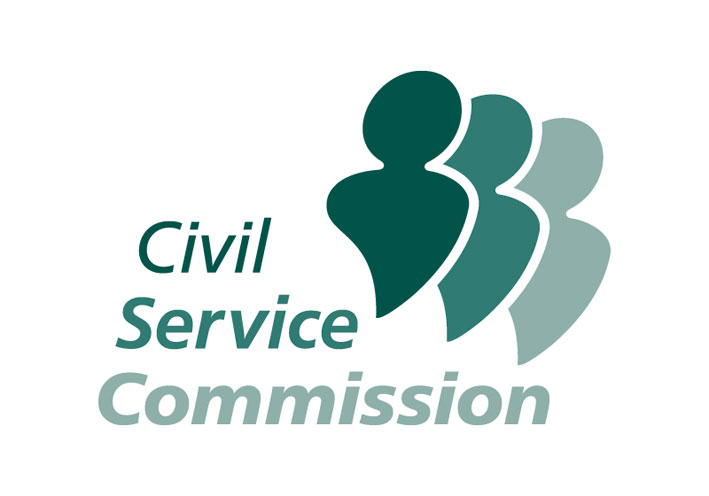Senior Civil Service leaders talk about disability
In the second blog in this series, John Knight CBE, who advises the Commission Board on disability, talks about his own experience and what more he thinks can be done to attract and support disabled candidates into senior Civil Service roles.

About John
John Knight’s career has spanned the voluntary and statutory sectors including the Department of Health, an international disability charity and as an assessor for the Commissioner for Public Appointments. He served on the Board of the Commission for Social Care Inspection (now part of the Care Quality Commission); the Charity Commission and was a member of a Cabinet Office Honours Appointments Committee. John was a Magistrate for 28 years.
He is currently a Board Member of a National Housing Association (which provides accessible housing to disabled people); a Governor of an Adult Education Institute and a London NHS Foundation Acute Trust as well being an advisor on disability issues to the Board of the Civil Service Commission.
He was appointed a Commander of the British Empire (CBE) for services to disabled people.
John brings a vivid lived experience of disability to all his work, blending the personal with the professional.
What do you think the civil service needs to do to attract more candidates with a disability into senior roles? What advice do you have for recruiters?
A significant and visible cohort of SCS employees with a disability would be really helpful – if you can’t see yourself in the levels above it’s a struggle to be motivated to climb up. This principle extends to the universal need for diverse interview panels – again, if you can’t see yourself…
It is essential that we start to fully understand disabled applicant’s journeys through the SCS appointments process – the conversion rates are disappointing. What feedback, if any, are we systematically garnering and learning from those applicants who fell by the wayside?
Recruiters need to adopt more flexible and creative approaches to interpreting applicants’ skills and experiences e.g. greater use of the Success Profile Framework. Applicants with a disability need to mine their own extensive life experiences and use examples from the everyday of resilience; planning; teamwork and creativity to augment the harder skills in any essential criteria – they are really valuable and valid. I’d also encourage recruiters to take more risks, look at potential rather than always opting for a safe pair of hands. I would like to see the Commissioners chairing the panel to report more explicitly on their observations and experiences regarding applicants with a disability in their final reports in order to better understand how the process might be improved and raise the profile of disability.
What could the civil service do better to attract and retain civil servants with a disability overall (at any level)? What do you see as the barriers?
Mmm… Let me ask you some questions! Why are Civil Servants with a disability twice as likely as those without to report being bullied and harassed? Commissioners should, with their Link departments, hold Permanent Secretaries feet to the fire (nicely!) on both disability recruitment and bullying and harassment. Are disabled employees able to access the same career development postings and training opportunities that their colleagues without a disability can? Finally, unconscious bias (the “silent assassin”) training is prevalent across the service – but is anybody checking whether this training is having a positive impact?
What has been your experience of reasonable adjustments (if any), and how have these helped you to do your job?
All good in my experience. Increasingly adjustments are offered without me having to ask for them. It is amazing how colleagues’ knowledge, intuition and confidence have grown in working with people who have impairments, empowering them to act like this. It’s a great story.
What has been your personal experience of working in the civil service? What made a difference to you?
I was a very junior Civil Servant at the then DHSS (who remembers that?) for 5 years – an exhilarating and intellectual rollercoaster ride serving a then energetic administration. More recently I was a Public Appointments Assessor with OCPA where I factored diversity and in particular disability very much into my work to appoint senior people to national public roles. Now, as an Advisor to the Board of the Civil Service Commission, I have been wrestling with the conundrum of why more disabled people are not following through the journey towards appointment to SCS roles. The intellectual challenge, mutual respect and lack of judgement in the CS (and its satellites) made and still does, a real difference to me.
Why is diversity particularly important at senior levels?
Diverse senior leadership a) helps erode/challenge unconscious bias; b) sends out positive messages to people from a variety of backgrounds that they are welcome; c) imports positive, fresh, and sometimes challenging and innovative thinking into policy debates.
What experiences did you have working at a senior level in the private sector? Are there lessons that the civil service can learn from the private sector here?
I worked at a very junior level in a bank for 3 years after I graduated from University (an ill-thought-out “milk round” job) before moving into the public sector where I thrived. Sure, there are things the CS can learn from the private sector – but this definitely works both ways. I’m currently a Director of a National social housing association. This involves managing physical and financial assets, brand reputation and new property developments/land acquisitions.
What drives and motivates you in your career?
It used to be proving myself to others but now having matured I am driven by a quiet satisfaction of moderate achievement in public service over 35 years. My wonderful, unorthodox family is a major driver also – we mind each other’s backs.
Outside work I really enjoy Opera, cricket (watching not playing) and my grandson.

